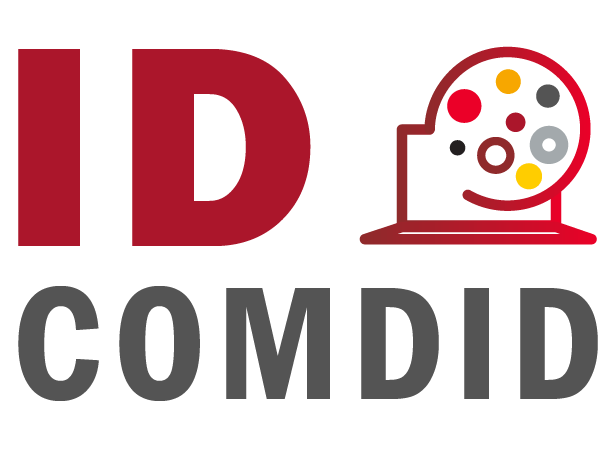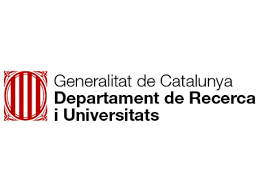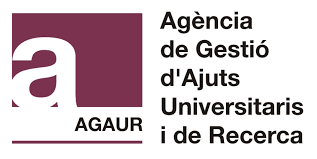
(ID_COMDID) La Inclusió Digital en la formació inicial dels mestres en COMpetència DIgital Docent
2020 ARMIF 00005
2021 - 2022
The project aims to design, develop and evaluate a training strategy in real scenarios to train future teachers in digital inclusion as part of the teaching digital competence (TDC).
Digital technologies (DT) generate effects of opportunities and inequalities to the same extent. It is at this point where the effects of the digital gap appear, which can be offset by actions related to training in digital inclusion.
Training in competences requires a mix between academic activity in the classroom with practical activity developed in a professional environment. In this sense, we propose a training strategy that has the participation and direct involvement of educational centers. The proposal aims the use of a training strategy in real scenarios, where university students work together collaboratively with in-service teachers to respond to complex problems related to inclusive attention to students through the use of the DT.
This proposal has been developed linked to different previous innovation projects and intends to be transferred to other universities and educational contexts.
The methodology to be used is Educational Design Research (EDR).
At the end of each cycle, a "product" will be obtained, understood as the training strategy, which will be developed in such a way that, at the end of the iterations, it will have gone through different stages of enhancement focused on the analysis of: relevance, consistency, usefulness and effectiveness.
The result of the analysis of all the evidence collected can be applied directly to the improvement of initial training in the context of the reference subjects of this project and in three different universities (UdL, UAB and URV). At the same time, it will contribute to innovation and quality improvement in the schools involved in the project.
Participants
| Name | Institution |
| Jose Luis Lázaro Cantabrana | Universitat Rovira i Virgili |
| Mercè Gisbert Cervera | Universitat Rovira i Virgili |
| Carme Grimalt Álvaro | Universitat Rovira i Virgili |
| Mònica Sanromà Giménez | Universitat Rovira i Virgili |
| Tània Molero Aranda | Universitat Rovira i Virgili |
| Cristina Mercader Juan | Universitat Autònoma de Barcelona |
| Enric Brescó Baiges | Universitat de Lleida |
| Rosa Bonachera Ribas | Escola Tarragona |
| Cristina Gabriel Vizcarro | Escola Torreforta |
| Manuel Bares Asensio | Escola Dr. Alberich i Casas |
| Miquel Martí Boqué | Escola Marià Fortuny |
| Gemma Gòdia Jordana | Escola Maristes Montserrat |
| Olga Armengol Pastallé | Col·legi Sant Nicolau |
General objective:
- Design, develop and evaluate a training strategy in real scenarios to train future teachers in digital inclusion as part of the TDC.
Specific objectives:
- SO1. Analyze and respond to the contextualized needs of educational centers in order to promote inclusive care for all students through the use of digital technologies.
- SO2. Collaborate with educational centers in the creation of inclusive T-L scenarios based on the use of digital technologies.
- SO3. Develop the TDC level of future teachers in order to offer educational opportunities that favor digital inclusion.
During the development of the project a mixed methodology will be used.
The research method to be used will be Educational Design Research, EDR (Van den Akker et al., 2006), a methodological approach derived from design-based research or design-focused research (DBR Collective, 2003).
The studies carried out applying this methodology allow us to address complex problems in real contexts and allow us to make scientific and practical contributions.
Based on the training strategy that is proposed, we will be able to respond to complex educational problems through the design, development and evaluation of teaching materials and interventions based on the expression of needs of educational centers.
Data collection Instruments:
On the one hand, two validated questionnaires will be applied to measure the students TDC level (Lázaro et al., 2019; Usart et al., 2020). The data of these will be treated quantitatively:
- COMMID-A. TDC Self-Assessment Questionnaire. To measure the TDC self-perceived and be able to have a diagnosis at the beginning of the training. At the same time, as a formative evaluation for students, since they must use it to become aware of their level of competence and, based on the recommendations received (feedback), take actions to improve it.
- COMDID-C. Knowledge assessment questionnaire. To measure students TDC level objectively and be able to compare it with the evaluation results obtained with other tools and strategies to analyze learning evidence.
Three questionnaires will be applied to evaluate the development of the project by the different agents involved (360 evaluation), to conclude with the actions derived from the project, at the end of each academic year: university students, pre-service teachers and teacher-researchers. The data from these instruments will be analyzed qualitatively and quantitatively.
On the other hand, based on the TDC evaluation indicators linked to digital inclusion (Sanromà, 2020), the data is processed qualitatively from the teaching and learning situations designed and developed by university students in each school context. To do so, the didactic materials designed and the sessions developed in the educational centers will be analyzed.
For this part, the documentary analysis of the didactic proposals will be used with a specific software (Atlas.ti) and a video analysis software (MED1C) for the T-L situations.
Articles
- Lázaro-Cantabrana, J. L., Sanromà Giménez, M., Molero Aranda, T., & Sanz Benito, I. (2021). La formación en competencias digitales de los futuros docentes: una experiencia de Aprendizaje-Servicio en la universidad. Edutec. Revista Electrónica De Tecnología Educativa, (78), 54-70. https://doi.org/10.21556/edutec.2021.78.2243
- Gisbert-Cervera,M., Usart,M., & Lázaro-Cantabrana,J.L. (2022). Training pre-service teachers to enhanced digital education. European Journal of Teacher Education. https://doi.org/10.1080/02619768.2022.2098713
- Sanz-Benito, I. Lázaro-Cantabrana, J. L., Grimalt-Álvaro, C., y Usart-Rodríguez, M. (2023). Formar y evaluar competencias en educación superior: una experiencia sobre inclusión digital. RIED-Revista Iberoamericana de Educación a Distancia, 26(2). https://doi.org/10.5944/ried.26.2.35791 Online
- Sanz Benito, I., Lázaro Cantabrana, J. L. ., & Grimalt Álvaro, C. . (2023). La inclusión digital en la formación inicial del profesorado: una revisión sistemática. Bordón. Revista De Pedagogía, 75(1), 127–146. https://doi.org/10.13042/Bordon.2023.94541
Book Chapter
- Sanz-Benito, I.; Molero-Aranda, T. & Lázaro-Cantabrana, J.L. (2022). Una experiencia de aprendizaje-servicio para el desarrollo de la competencia digital docente desde la perspectiva del uso inclusivo de las tecnologías digitales en la universidad. En Román-Graván, P., Barragán-Sánchez, R., Gutiérrez-Castillo, J.J., y Palacios-Rodríguez, A. Dibujando espacios de futuro inclusivos con TIC en Educación Infantil (pp. 492-497). Grupo de Investigación Didáctica. https://bit.ly/3Mu9fnI
- Sanz-Benito, I., Molero-Aranda, T. & Lázaro-Cantabrana, J. L. (2022). Developing digital teaching competence through a university service-learning experience promoting inclusive use of digital technologies. In R. Romero-Tena, C. Llorente-Cejudo, S. Martínez-Pérez & M. Rodríguez-Gallego (Eds.), Technologies in Childcare Education to draw up future inclusive spaces: blurring the present (chapter 19). Thomson Reuters. https://tmsnrt.rs/3yceZOv
Conference papers
- Lázaro Cantabrana, José Luis y Sanz Benito, Iván (2022). Inclusión digital en la formación inicial del profesorado. Conmgreso internacional EDUTEC. Palma de Mallorca. Lázaro-Cantabrana, J.L., Molero-Aranda, T., Sanz-Benito, I. (2022).
- Lázaro Cantabrana, José Luis y Sanz Benito, Iván (2022). Inclusión digital en la formación inicial del profesorado. Congreso internacional EDUTEC. Universitat de les Illes Balears, Palma de Mallorca.
Thesis
- Link: #



